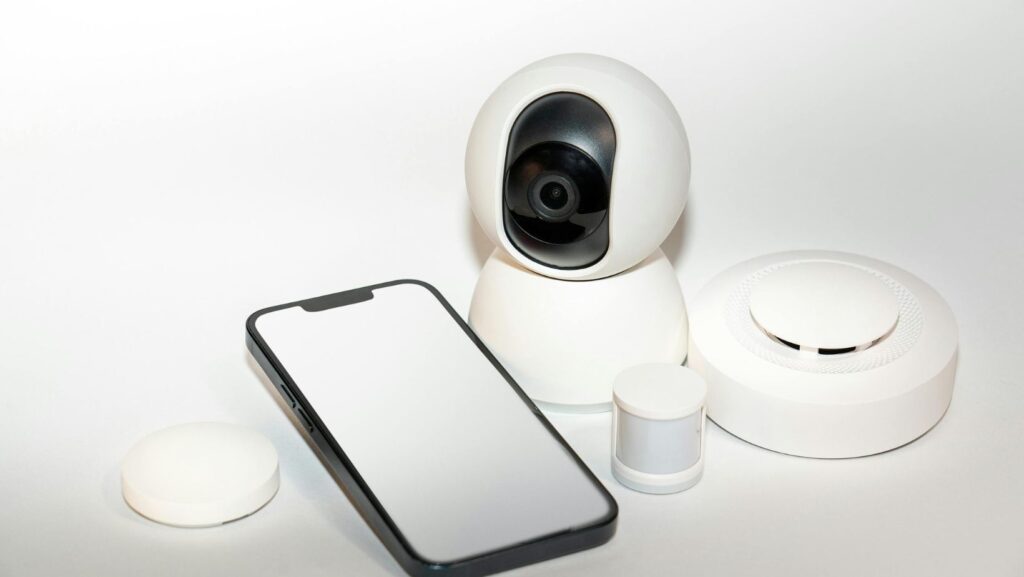
Home improvement projects enhance your living space and property value. But they also come with security risks. Whether you’re remodeling a kitchen or adding a new room, keeping your home and everyone involved safe should be a top priority.
This guide covers essential security measures to protect your tools, property, and workers throughout the renovation process.
Planning for a Secure Project
Proper planning reduces security risks before construction begins. This includes securing tools, vetting contractors, and setting up a safe work environment.
Tools are valuable and often targeted by thieves. Store them in a locked garage or shed when not in use. Use portable tool boxes with strong locks for extra protection. Installing motion-activated security cameras in storage areas can also deter theft.
Not all contractors are trustworthy. Research potential hires before making any agreements. Check online reviews, ask for references, and verify licenses and insurance. A reputable contractor will have no issue providing proof of credentials.
On-Site Security Measures
Once the project starts, extra precautions are necessary to keep the site secure.
Install Security Cameras
Surveillance cameras help you monitor the project and deter trespassers. Place cameras in key areas, such as entry points and tool storage spaces. Modern cameras offer remote access, motion alerts, and night vision for better security.
Improve Outdoor Lighting
Poor lighting makes it easy for intruders to sneak in. Install motion-sensor lights around the property and near work areas. This not only enhances security but also reduces the risk of accidents.
Control Site Access
Unauthorized access can lead to theft or safety hazards. Use temporary fencing or barriers to restrict entry. Keep doors and gates locked when no one is working. If hiring multiple workers, consider issuing visitor badges for better identification.
Safety First: Protecting Workers and Family
Security isn’t just about preventing theft. It’s also about ensuring the safety of workers, family members, and anyone involved in the renovation. A construction site, no matter how small, can be full of hazards.
Personal protective equipment (PPE) is essential. Helmets, gloves, and safety glasses protect against falling objects, sharp materials, and debris. When using power tools or heavy machinery, proper gear reduces injury risks. Inspect PPE regularly and replace any damaged items immediately.
Keeping the work area organized prevents accidents. Mark hazardous areas with warning signs and keep walkways clear. If you have pets, set up barriers or temporary fencing to keep them out of dangerous zones. A secure worksite keeps everyone safe.
Cybersecurity in Smart Home Renovations
As technology becomes more integrated into home improvement projects, cybersecurity is just as important as physical security. Many homeowners are adding smart locks, security cameras, and automated systems to their properties, but these innovations can also introduce digital risks.
Protecting Smart Home Devices
Smart home security starts with securing your internet-connected devices. Always use strong, unique passwords and enable two-factor authentication (2FA) to prevent unauthorized access. Change default login credentials immediately, as hackers often target factory-set passwords.
Keeping your software updated is crucial. Many breaches occur due to outdated firmware in smart locks, security cameras, or home automation systems. Regularly check for software updates to patch security vulnerabilities.
Safe Online Practices for Homeowners
Many homeowners engage in online transactions for renovations, from purchasing materials to hiring contractors. Whether shopping on e-commerce platforms or enjoying entertainment on trusted online casino platforms, ensuring website security is key to a safe digital experience.
Using encrypted connections and secure payment methods helps protect financial data while enjoying the convenience of online services. For example, when purchasing smart home devices, always buy from reputable retailers and check for HTTPS in the URL to confirm a secure connection. Similarly, if hiring a contractor through an online platform, verify their credentials, read reviews, and use secure payment options to avoid scams.
Preventing Cyber Threats During Home Renovations
Hackers may exploit unsecured Wi-Fi networks or poorly configured devices to gain unauthorized access. To prevent cyber threats, homeowners should:
- Create a dedicated network: Set up a separate Wi-Fi network for smart home devices to keep them isolated from personal computers and sensitive information.
- Enable Multi-Factor Authentication (MFA): Use MFA on accounts related to security systems and home automation to add an extra layer of protection.
- Monitor network activity regularly: Check for unusual login attempts or unauthorized access to detect and prevent potential cyber threats early.
Combining cybersecurity with home security helps protect both physical and digital assets during renovations.
Building Safely and Securing Home Smartly
Home improvement projects come with risks, but security measures can prevent problems. Lock up tools, vet contractors, and use smart technology to stay protected. Combining safety protocols with modern security solutions keeps your home secure and your project on track. Stay prepared, stay safe.













